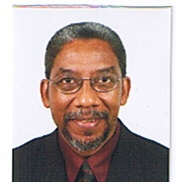 Several very interesting developments are unfolding regarding the situation in Venezuela. Here are some reported in the Miami Herald today:
There is the view that the political affairs of that country are to be resolved by mediation/discussion between the opposing political players. This is the view being advanced by the UN, CARICOM, Mexico, Uruguay and the Vatican among others. The other is that by a consensus among countries other than Venezuela, the political issues are to be decided based on whether a majority of countries recognise Maduro or Guaido as the President and that the US and other countries can use sanctions and even military intervention to decide the issues in Venezuela. The US told the UN Security Council that every country must ‘pick a side’. The first is based on acknowledgement and affirmation of the right of the people of Venezuela are sovereign and are the ones to decide the issues. The second is based on a claim of a “Right” of foreign powers to decide what and who is right or wrong in Venezuela and use interference, intervention and other coercive means to impose “their solution”. Whether there will be a resolution of the issues in Venezuela which can be a basis of some lasting solution depends largely on which of these opposing approaches on the part of the international community holds sway. Constitutional Question The declaration by Guaido as President claiming to be acting based on the “illegitimacy” of Maduro’s Presidency and claiming to be acting on the basis of Article 233 of the Venezuelan Constitution and therefore being “Constitutional, legitimate and lawful”. The US President “recognising” Guaido immediately claimed “The citizens of Venezuela have suffered for too long at the hands of the illegitimate Maduro regime”. A host of countries including the ‘Lima Group’ within the OAS have also claimed the ‘illegitimacy’ of Maduro’s Presidency. The EU does not even bother to argue legitimacy, but simply says hold elections in 8 days or we will ‘recognise’ Guaido as President. Locally, the Opposition ‘recognises’ Guaido by ‘condemning ..breaches of the rule of law and democratic process’ by Maduro. Some supporters of the US claim of Guaido’s so-called legitimacy is based on stating that Article 233 gives the President of the National Assembly the right to appoint himself President because Maduro is an illegitimate President. Some claim that because less than 50% voted in the election of Maduro or that claims of opposition candidates being jailed or harassed makes his Presidency illegal, illegitimate or a usurper. It is therefore important to examine Article 233 of the Venezuela Constitution to form any opinion as to what is constitutional or in keeping with the rule of law regarding the Venezuelan Presidency. Article 233 • Head of state replacement The President of the Republic shall become permanently unavailable to serve by reason of any of the following events: death; resignation; removal from office by decision of the Supreme Tribunal of Justice; permanent physical or mental disability certified by a medical board designated by the Supreme Tribunal of Justice with the approval of the National Assembly; abandonment of his position, duly declared by the National Assembly; and recall by popular vote. When an elected President becomes permanently unavailable to serve prior to his inauguration, a new election by universal suffrage and direct ballot shall be held within 30 consecutive days. Pending election and inauguration of the new President, the President of the National Assembly shall take charge of the Presidency of the Republic. When the President of the Republic becomes permanently unavailable to serve during the first four years of this constitutional term of office, a new election by universal suffrage and direct ballot shall be held within 30 consecutive days. Pending election and inauguration of the new President, the Executive Vice-President shall take charge of the Presidency of the Republic. In the cases describes above, the new President shall complete the current constitutional term of office. If the President becomes permanently unavailable to serve during the last two years of his constitutional term of office, the Executive Vice-President shall take over the Presidency of the Republic until such term is completed. Based on the provisions of Article 233, the President can only be replaced if the sitting President is “permanently unavailable to serve” due to:
The President of the National Assembly can ONLY “take charge” of the Presidency of Venezuela, if the President becomes ‘permanently unavailable’ prior to his inauguration. But Maduro was inaugurated on January 10 and Guaido proclaimed himself ‘President’ January 23. In every other case, where a sitting President after inauguration and during his term of office becomes ‘permanently unavailable’, the Vice President is to ‘take over’ the Presidency, not the President of the National Assembly. Based on the provisions of Article, can Guaido claim to be legitimate and acting constitutionally and in keeping with the rule of law? Can anyone ‘pick a side’ and ‘recognise’ Guaido as ‘legitimate’ and ‘lawful’ President of Venezuela based on the contents of Article 233 of the Venezuelan Constitution? From a plain English reading of the Constitution, it is difficult that in the absence of a decision of the Supreme Tribunal or any of the other conditions spelt out in Article 233, it is difficult to believe that Guaido has acted in accordance with the Constitution, the supreme law of Venezuela. What say you? Clyde Weatherhead A Citizen Fighting for Democratic Renewal of Our Society 31 January 2019
Fred Massiah
1/2/2019 05:57:06 am
Any opposition politician can simply declare himself or herself President or Prime minister....of course with the support of the US or European powers.... Democracy in action according to our American ambassador in Marlo St. Comments are closed.
|
AuthorI am a appalled at the loss of the simple skills of discussing ideas and sharing Opinions to DEEPEN ANALYSIS and UNDERSTAND DEVELOPMENTS to ARRIVE AT SOLUTIONS. Archives
April 2024
Categories |

About Clyde Weatherhead
Clyde has been involved in public life as a political activist, a trade unionist, Lawyer, Teacher and Author |
Connect With Clyde
Write to Clyde on Facebook Visit Clyde's Author Page on Amazon Go To Discussion on Facebook For Employment Relations Issues |

 RSS Feed
RSS Feed